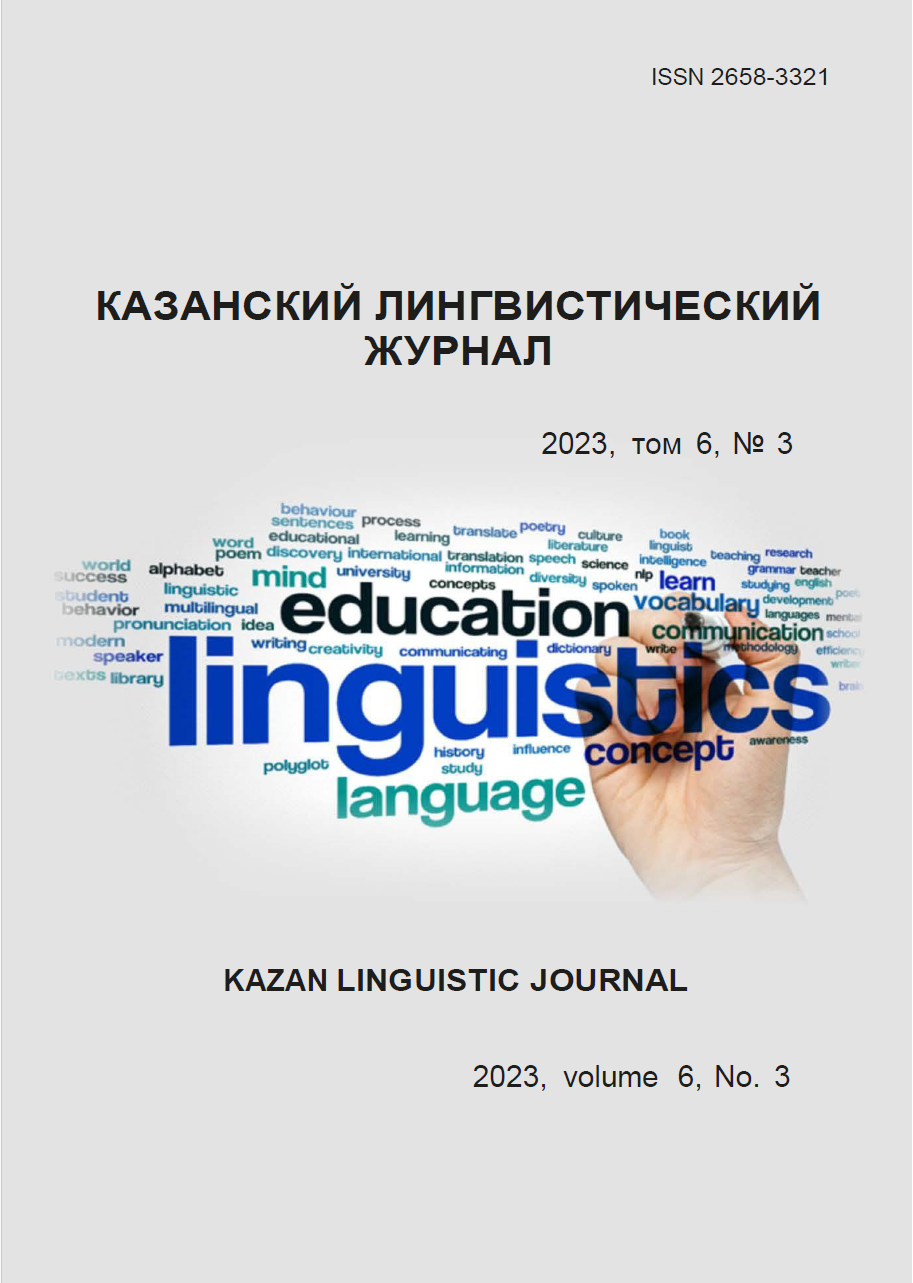Linguocultural approach to the analysis of the peculiarities of the translation of stable expressions in Z. Livaneli’s novel “Happiness”
https://doi.org/10.26907/2658-3321.2023.6.3.366-375
Keywords:
literature, Turkish literature, translation, cultural code, Turkish languageAbstract
Literature is an integral part of the culture of every nation, an indicator of the diversity and richness of the language, as well as the historical and mental features of a particular language or nation. After all, a work of art is not only a text that tells about past events or a description of personalities and phenomena, it is, first of all, a train of thought, life lessons, the beauty of language turns and the possibility of conveying emotions and experiences with the help of words. From this point of view, the translation of works of fiction from the original language into a foreign language is of interest. The task of the translator is not only the translation of vocabulary, but also the transfer of the meanings of set expressions, jokes, moments that describe the characteristics of the people, reflecting cultural and historical values. This article examines examples from the novel «Happiness» (in Turkish: Zulfü Livaneli “Mutluluk”) by the contemporary Turkish writer Zulfü Livaneli and compares the linguistic and cultural aspects of the translation of a literary text using the example of languages with different structures. Studying linguocultural concepts in their diversity, we approach the representation of the national picture of the world about the value system and behavior patterns of native speakers.
References
References
Livaneli Z. Happiness. Moskva: Eksmo; 2018. (In Russ.)
Livaneli Z. Mutluluk. İstanbul: Doğan Kitap; 2019. (In Turk.)
Khabibullina E.K., Ju S. Syntactic Transformations on the Example of Trans-lating a Literary Work from Korean to Russian. Kazan Linguistic Journal. 2023;6(2):198–210. Available from: http://kaz-linguo-journal.ru/index.php/linguo/article/view/347/275 (In Russ.).
Maslova V.A. Linguoculturology: Textbook for students of higher educational institu-tions. M.: Akademija; 2004. 208 p. (In Russ.)
Vorobyev V.V. Lingvokulturalogiya. Мoskva.: Izdatelstvo RUDN, 2008. (In Russ.)
Komissarov V.N. Translation linguistics. Мoskva: Librokom; 2017. (In Russ.)
Albayrak N. Türkiye Türkçesinde Atasözleri. Kapı Yayınları 184. Temmuz; 2009. p. 1140. (In Turk.)
Tereshchenkova I.I. The concept “Man” in Turkish, English and Russian linguocul-tures (the experience of researching concepts that are institutionally significant for the ethnic picture of the world). Vestnik NSU. 2007;5(2). Available from: https://cyberleninka.ru/article/n/kontsept-muzhchina-v-turetskoy-angliyskoy-i-russkoy-lingvokulturah-opyt-issledovaniya-institutsionalno-znachimyh-dlya-etnicheskoy/viewer [accessed: 03.09.2023] (In Russ.)
Ter-Minasova S.G. Yazik I mezhkulturnaya kommunikatsiya. Available from: http://www.ffl.msu.ru/research/publications/ter-minasova-lang-and-icc/ter-minasova-yazik-i-mkk-BOOK.pdf [accessed: 03.09.2023]. (In Russ.)
Kazymova L.A. Language and culture: to the question of the specifics of linguocul-turology. Filologiya i lingvistika. 2018; 3(9):19–22. Available from: https://moluch.ru/th/6/archive/107/3767/ [accessed: 03.09.2023]. (In Russ.)
Kurtiyev R.I. Calendar rites of the Crimean Tatars. Krymskoe uchebno- pedagogicheskoe gosudarstvennoe izdatelstvo. 1996;3(12):144–147. (In Russ.)






